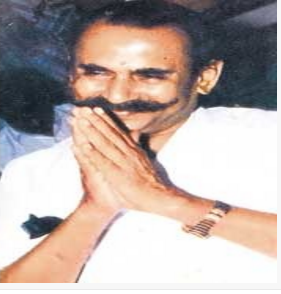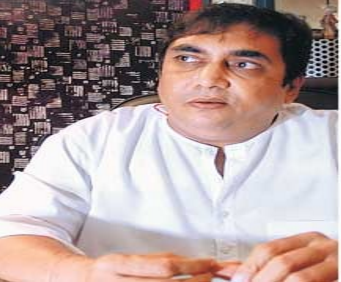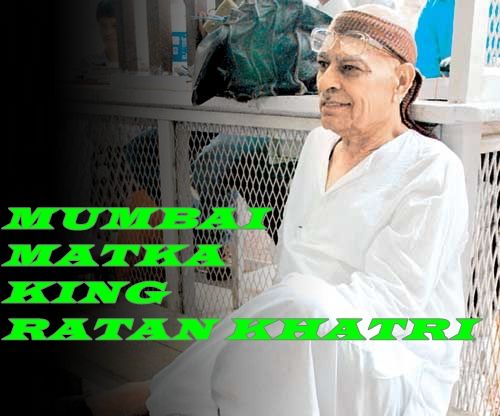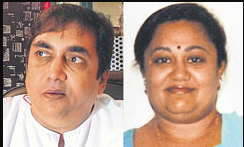All About Matka History
About Matka
Matka gambling, or Satta, is a form of lottery that originally involved betting on the opening and closing rates of cotton transmitted from the New York Cotton Exchange. It originates from before the era of Indian independence when it was known as Ankada Jugar (figures gambling). This system was replaced with other ways of generating random numbers in the 1960s, including pulling slips from a large earthenware pot known as a matka or dealing with playing cards. Matka gambling is illegal in India.In the original game, betting would take place on the opening and closing rates of cotton as transmitted to the Bombay Cotton Exchange from the New York Cotton Exchange via teleprinters. In 1961, the New York Cotton Exchange stopped the practice, which caused the punters to look for alternative ways to keep the matka business alive. Ratan Khatri introduced the idea of declaring the opening and closing rates of imaginary products. Numbers were written on pieces of paper and were put into a matka, a large earthen pitcher. One person would then draw a chit and declare the winning numbers. Over the years, the practice changed so that three numbers are drawn from a pack of playing cards, but the name "matka" was kept. In 1962, Kalyanji Bhagat started the Worli matka. Ratan Khatri introduced the New Worli matka in 1964, with slight modifications to the rules of the game. Kalyanji Bhagat's matka ran for all days of the week, whereas Ratan Khatri’s matka ran only five days a week, from Monday to Friday. During the flourishing days of textile mills in Mumbai, many mill workers played matka, resulting in bookies opening their shops in and around the mill areas, predominantly located in Central Mumbai. Central Mumbai became the hub of the matka business in Mumbai. The decades of the 1980s and 1990s saw the matka business reach its peak. Betting volumes in excess of Rs. 500 crores would be laid every month. The Mumbai police’s massive crackdown on the matka dens forced dealers to shift their base to the city’s outskirts. Many of them moved to Gujarat, Rajasthan and other states. With no major source of betting in the city, the punters got attracted to other sources of gambling, such as online and Zhatpat lotteries. Meanwhile, the rich punters began to explore betting on cricket matches. In 1995 there were more than 2,000 big and medium-time bookies in the city and neighbouring towns, but since then, the numbers have declined substantially to less than 300. Of late, the average monthly turnover has remained at ~100 crore Rupees. The modern matka business is centered around Maharashtra. Matka Kings
Kalyanji Bhagat

Kalyanji Bhagat was born a farmer in the village of Ratadia, Ganesh Wala in Kutch, Gujarat. Kalyanji's family name was Gala, and the name Bhagat, a modification of bhakt, was a title given to their family by the King of Kutch for their religiousness. He arrived as a migrant in Bombay in 1941 and initially did odd jobs such as Masala Ferriwala (spice seller) to managing a grocery store. In the 1960s, when Kalyanji Bhagat was running a grocery shop in Worli, he pioneered matka gambling by accepting bets based on the opening and closing rates of cotton traded on the New York wholesale market. He used to operate from the compound of his building Vinod Mahal, in Worli. After Kalyanji Bhagat, his son Suresh Bhagat managed the business along with his wife Jaya Bhagat, whom he married in 1979.
Suresh Bhagat

On June 11, 2008, a truck rammed into a Mahindra Scorpio in which Suresh Bhagat and six others, including his lawyer and bodyguards, were travelling, killing all of them. They were returning from an Alibaug court, where the 1998 narcotics case hearing had been held. During investigations by the police, it was revealed that Hitesh Bhagat (Suresh Bhagat's son) and his mother Jaya Bhagat had hatched the plot to kill Suresh Bhagat. Hitesh and nine others, including Jaya, were arrested and were tried under the stringent act of Maharashtra Control of Organised Crime Act and subsequently convicted.
Ratan Khatri

Ratan Khatri, known as the Matka King, from the early 1960s to mid-1990s, controlled a nationwide illegal gambling network with international connections which involved several lakh punters and dealt with crores of rupees. Ratan Khatri Matka started in the bustling business area of Dhanji Street in Mumbadevi, where idlers used to wager on the daily trickle of the fluctuating cotton rates from the New York market. Gradually, it became a big gambling hub as the quantum of bets and betters increased. Due to a row over a winning number plus the New York market’s five-day week schedule, compulsive betters began looking for alternatives. Based on the requests of his friends, Khatri started his syndicate and started drawing three cards to decide the day’s number. Khatri's betting game was considered more genuine as the cards were reportedly opened in the presence of the patrons. During the emergency in India, Khatri was jailed and served 19 months behind bars. He has retired from the gambling business and lives near Tardeo; however, he still does visit the Mahalaxmi Racecourse to bet on his favourite horses.
Suresh Bhagat With His Wife Jaya Bhagat


Terminology
Term Meaning/ExplanationMatka: you'll ask why it's called Matka. This word is derived from Hindi, and it deduces earthen pot. Interior the past, Such pots were used to draw random numbers and make it simple to check. You'll discover this word a touch odd. As of present, this word is an alternative title for the game itself.
Single: you'll go with any digit a few put within the scope of 0 to 9 which consolidates wagering. Choose your lucky number and play your diversion to have a 1 in a 10 chance of winning the prize money.
Jodi/Pair: Jodi is a Hindi word that deduces a match. You'll choose any combination of digits within the scope of 00 and 99 recalling for Matka. You'll have a Jodi combine to appreciate tons.
Patti/Panna: there's another sort on the outline called Patti and Panna. A combination of three-digit results comes as wagering results. Moreover, along these lines inquisitively, each three-digit number is Patti/Panna. Besides, you'll go with fairly restricted three-digit numbers utilized, and this makes strides in the level of the wear.
Open result/close result: This one is stacked up with escalated. You'll not know the conclusion of the Matka market wagering portion without both two zones. Our website displays the results of many Matka markets.
Sattaratanking.com
Sattaratanking.com is also known as "Satta Matka Ratan"; a world of Experts Guessing Forum website and one of the most Visited Satta Sites amongst people engaged in Satta Matka markets like Time Bazar, Milan Day/Night, Kalyan Matka, Rajdhani Day/Night Satta, Main Mumbai. We provide super fast and fastest Satta Results. What sets us apart From all the Other big Players in this Industry is that Our Content can help you to win big in Sattamatka.We provide live updates on Matka results and an expert Guessing Forum where our Experts help you with the Quickest Earnings. You will find Free Open and Close Fix Satta numbers in our guessing forum. Weekly Jodi & Panna with Lifetime Golden win Chart in sattaratanking.Com SPECIAL ZONE You will Get to know Evergreen Tricks Zone and old charts of Kalyan Matka & Mumbai Matka Of 1972 to 2012 With King Maker Khatri's Favorite Panna also known as leaf and behalf of CHARTS ZONE We Provide You Kalyan Chart Mumbai Chart Supreme Chart Milan day Milan Night Chart & Rajdhani Day & Night Jodi Chart With Penal patti leaves.Satta to name a few. Sattaratanking comes out as an undisputed leader in this arena; after all, we have been in the industry for many years. And we attribute this success to our consistent efforts in publishing the results of all Satka Matka games at the earliest and quicker than all other major players in this market.
Sattaratanking.com has carved out a distinct niche since we regularly provide various services to our users and visitors on our platform. We host an online guessing forum, the link to which can easily be obtained by scrolling down on the homepage itself, and our experts help people predict the result of Satta Matka games. Along with it, we also provide tips and tricks to our visitors to earn handsome amounts out of this game. In addition, it would be no exaggeration to claim that we were and remain undisputed leaders in the fastest publishing of Satta Matka games' results on our webpage, mainly because we have direct tie-ups with organizations managing the various forms of Satta Matka games.
We desire our users to remain updated about the results and guesses so that they can place their best bets accordingly. To fulfil this objective, we developed an Android application for our users to carry updates with them on the move at the touch of their fingertips. This application will provide you with live Matka results updates for Time Bazar, Madhur Day, Super Bazar, Milan Day, Rajdhani Day, Kalyan, Madhur Night, Milan Night, Rajdhani Night, and Main Mumbai games. Our platform will also tell you about the opening and closing times for all the Matka games mentioned above.
We believe our platform does a phenomenal job as acting as an entertaining source and medium for our users and serves as a binding and amalgamating force for gamblers internationally. In addition, we provide timings and live result updates for all Sattamatka-based games, namely Gali, Desawar, and Kuber Matka. Furthermore, we maintain a directory of daily records for the Matka games like Kalyan and Mumbai, Milan Day/Night, and Rajdhani Day/Night. You can easily find the results of any Sattamatka market on a particular day. It doesn't matter if the result was announced several years back. That's another advantage of our platform you would not find anywhere else.
Our committed team of experts is here to assist you in playing Satta Matka games online. Our objective is to help you recover the money you might have previously lost. Inevitably, our target is to help you become the ultimate Satta Matka King. So let's play. The game is on!